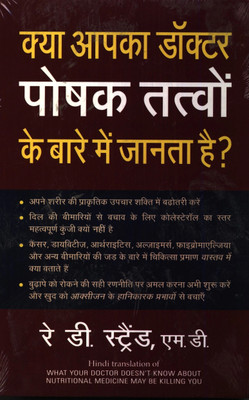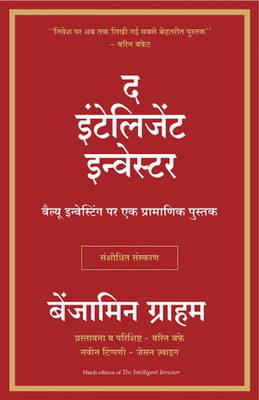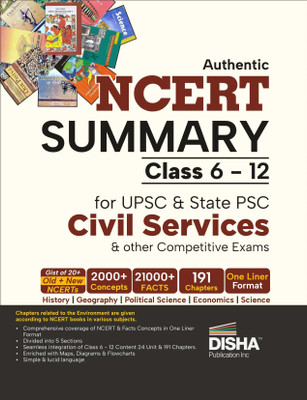
Share
Communication skills for educational managers 01 Edition (Others, Paperback, Chopra Pradhan)
Be the first to Review this product
₹842
₹925
8% off
Coupons for you
T&C
Available offers
T&C
T&C
T&C
T&C
Delivery
Check
Enter pincode
Delivery by16 Nov, Sunday
?
View Details
Highlights
- Language: Others
- Binding: Paperback
- Publisher: Book Enclave
- ISBN: 9788181522269, 8181522265
- Edition: 01, 2008
- Pages: 320
Services
- Cash on Delivery available?
Seller
Description
The study described in this book addresses the critical needs of educational administrations to sharpen their skills on how to manage change, resources, financial matters, technology, people, relationships, conflict resolution and the overall communication to and from the organization they work for. Focusing on identified training needs, the self-instructional material in the book will be of great interest and use to researchers to fulfil the role of administrator or Principal in a college, university or any other academic organization.
About Author :
Prof. N Pradhan, completed his Doctoral work in 1986 from the Centre of Advanced Studies in Education, The M S University of Baroda and is Head & Coordinator, Department of Educational Administration, Faculty of Education and Psychology, The M S University of Baroda since 1999. He has handled several research projects and has extensively published research articles, theoretical papers and books. He has been recently appointed to a national level committee to suggest measures fore improvement of Elementary Education and Literacy to the Ministry of Human Resource Development, Government of India, New Delhi. Dr. Pradhan serves on board of many professional organizations and continues to contribute actively and affectively in the field.
Dr. N Chopra is working with the Faculty of Journalism and Communication, The M S University of Baroda since 1994. She has over 15 years of experience in teaching and evolving Media Education curriculum at the post-graduate level and research experience encompassing areas of Communication Research, Theorization and Applications to Electronic/Broadcast and New Media. She has been involved as Resource Person/Participant in national and international seminars and contributes actively to numerous activities in the field.
Contents :
Contents
Preface
Part-I
The Study
1. Introduction
2. Review of Literature
3. Plan and Procedures for the Study
4. 'Role Analysis' of College Principals
5. Communication Needs Assessment-Survey Analysis
6. Development, Implementation and Evaluation of the Module
7. Findings, Conclusion and Recommendations
Part-II
The Module
1. Conceptual Understanding of 'Communication'
2. Understanding Organizational Communication
3. Oral Communication
4. Written Communication
5. Use of Technology in Communication
6. Epilogue
Annexures
Bibliography
About Author :
Prof. N Pradhan, completed his Doctoral work in 1986 from the Centre of Advanced Studies in Education, The M S University of Baroda and is Head & Coordinator, Department of Educational Administration, Faculty of Education and Psychology, The M S University of Baroda since 1999. He has handled several research projects and has extensively published research articles, theoretical papers and books. He has been recently appointed to a national level committee to suggest measures fore improvement of Elementary Education and Literacy to the Ministry of Human Resource Development, Government of India, New Delhi. Dr. Pradhan serves on board of many professional organizations and continues to contribute actively and affectively in the field.
Dr. N Chopra is working with the Faculty of Journalism and Communication, The M S University of Baroda since 1994. She has over 15 years of experience in teaching and evolving Media Education curriculum at the post-graduate level and research experience encompassing areas of Communication Research, Theorization and Applications to Electronic/Broadcast and New Media. She has been involved as Resource Person/Participant in national and international seminars and contributes actively to numerous activities in the field.
Contents :
Contents
Preface
Part-I
The Study
1. Introduction
2. Review of Literature
3. Plan and Procedures for the Study
4. 'Role Analysis' of College Principals
5. Communication Needs Assessment-Survey Analysis
6. Development, Implementation and Evaluation of the Module
7. Findings, Conclusion and Recommendations
Part-II
The Module
1. Conceptual Understanding of 'Communication'
2. Understanding Organizational Communication
3. Oral Communication
4. Written Communication
5. Use of Technology in Communication
6. Epilogue
Annexures
Bibliography
Read More
Specifications
Book Details
| Publication Year |
|
Contributors
| Authored By |
|
Be the first to ask about this product
Safe and Secure Payments.Easy returns.100% Authentic products.
Back to top







